The Meta-Retrospective — Check Out the Free Miroverse Template

TL; DR: The Meta-Retrospective
The Meta-Retrospective is an excellent exercise to foster collaboration within the extended team, create a shared understanding of the big picture, and immediately create valuable action-items. It comprises team members of one or several product teams—or a representative from those—and stakeholders. Participants from the stakeholder side are people from the business as well as customers. Meta-Retrospectives are useful both as a regular event, say once a quarter, or after achieving a particular milestone, for example, a specific release of the product.
Read more on how to organize such a Meta-Retrospective and do not forget to check out the free Miro Meta-Retrospective template.
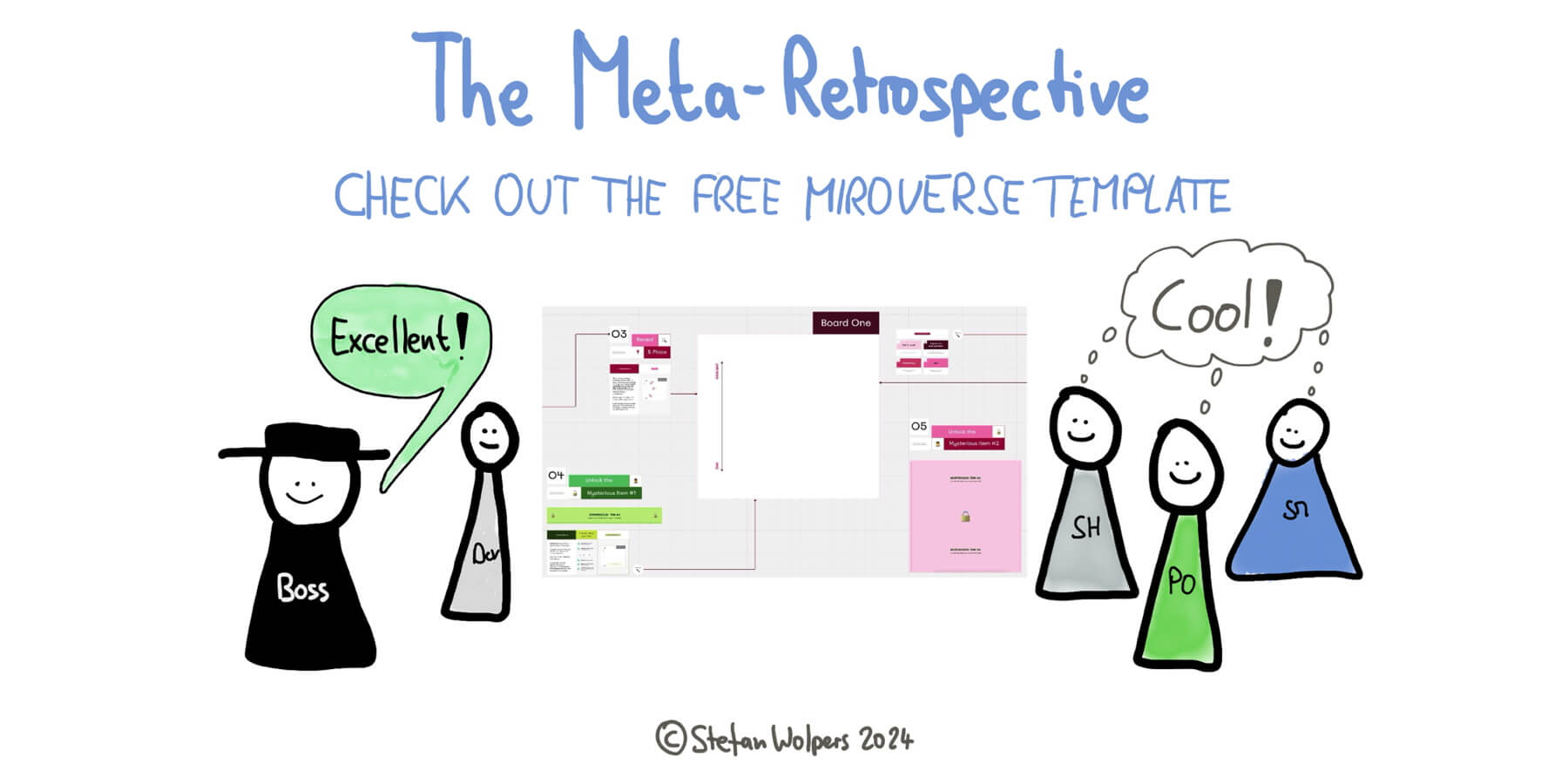
🗞 Shall I notify you about articles like this one? Awesome! You can sign up here for the ‘Food for Agile Thought’ newsletter and join 42,000-plus subscribers.
🎓 Join Stefan in one of his upcoming Professional Scrum training classes!
The Benefits of the Meta-Retrospectives
Your stakeholders are your allies, not an impediment!
When we’re open about our goals and processes, collaboration with our stakeholders can shift from challenging or annoying to an extraordinary experience for all parties involved. Therefore, inviting our stakeholders to Retrospectives is a smart move. It’s a proven first step toward building trust, fostering open communication, and improving our collaboration with each other.
To help facilitate this kind of Retrospective, I’ve teamed up with Miro to develop the brand-new Meta-Retrospectives template. This tool is not just for you but for your stakeholders, too, fostering a collaborative environment and strengthening your relationships. In four simple steps, your team and your stakeholders will identify:
- Areas where the team has improvement potential and the agency to act.
- Areas where the team and stakeholders need support from the leadership to improve value creation.
Run the Meta Retrospectives regularly, and you will:
- Create a shared understanding of how you work,
- Set reasonable expectations and
- Open a channel to discuss how you can improve your cooperation.
I also included an in-depth video walkthrough with the template to share my tips for getting the most out of this template. Don’t hesitate to try my Miro Meta-Retrospective template the next time you think about improving stakeholder relations, and let me know what you think!
How to Run a Meta-Retrospective
Note: The following description is a simplified version of the Meta-Retrospective. For the complete exercise, please check out the Miro Meta-Retrospective template.
The Meta-Retrospective format I describe in the following text is partly based on Zach Bonaker’s WADE-matrix, extended by an additional practice at the beginning of the retrospective. To frame the level of (necessary) openness of the upcoming conversation, I run a short exercise bringing the Scrum values back into the hearts and minds of the attendees. After all, we are organizing the Meta-Retrospective to also address the elephants in the room.
The Meta-Retrospective itself does not require any knowledge of agile practices and is hence suited for practically everyone. This format can easily handle 15-plus people, provided the room is large enough. It works best when there is space available where people can get together for discussions. Also, we need at least one large whiteboard in the room as most of the work will happen initially on this wall.
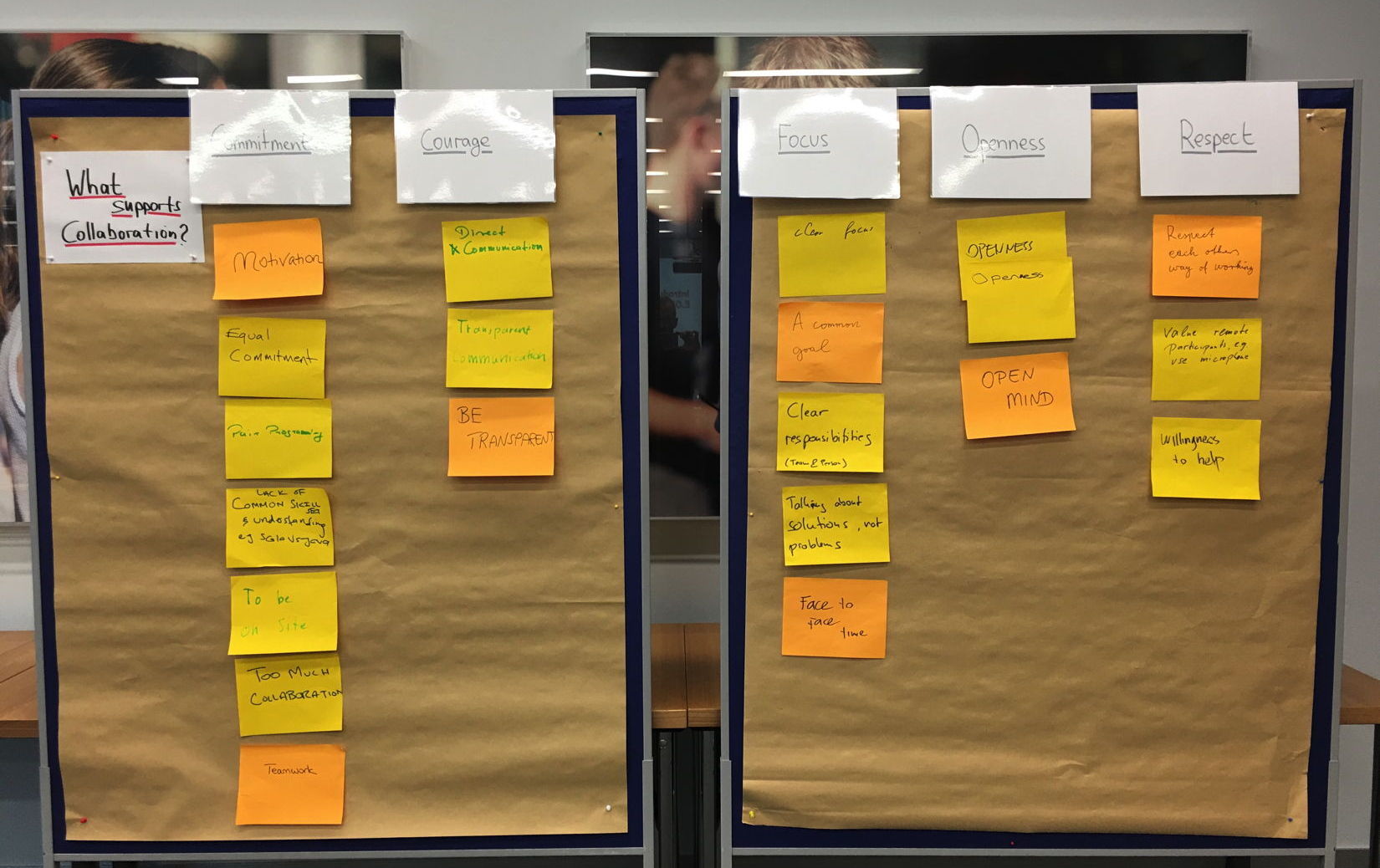
Cannot see the form?
Please click here.
The Meta-Retrospective Exercise
Start the Meta-Retrospective by drawing the first axis onto the whiteboard and note that the axis represents a continuum. Then ask the attendees to pair up again but choose a different partner than before.
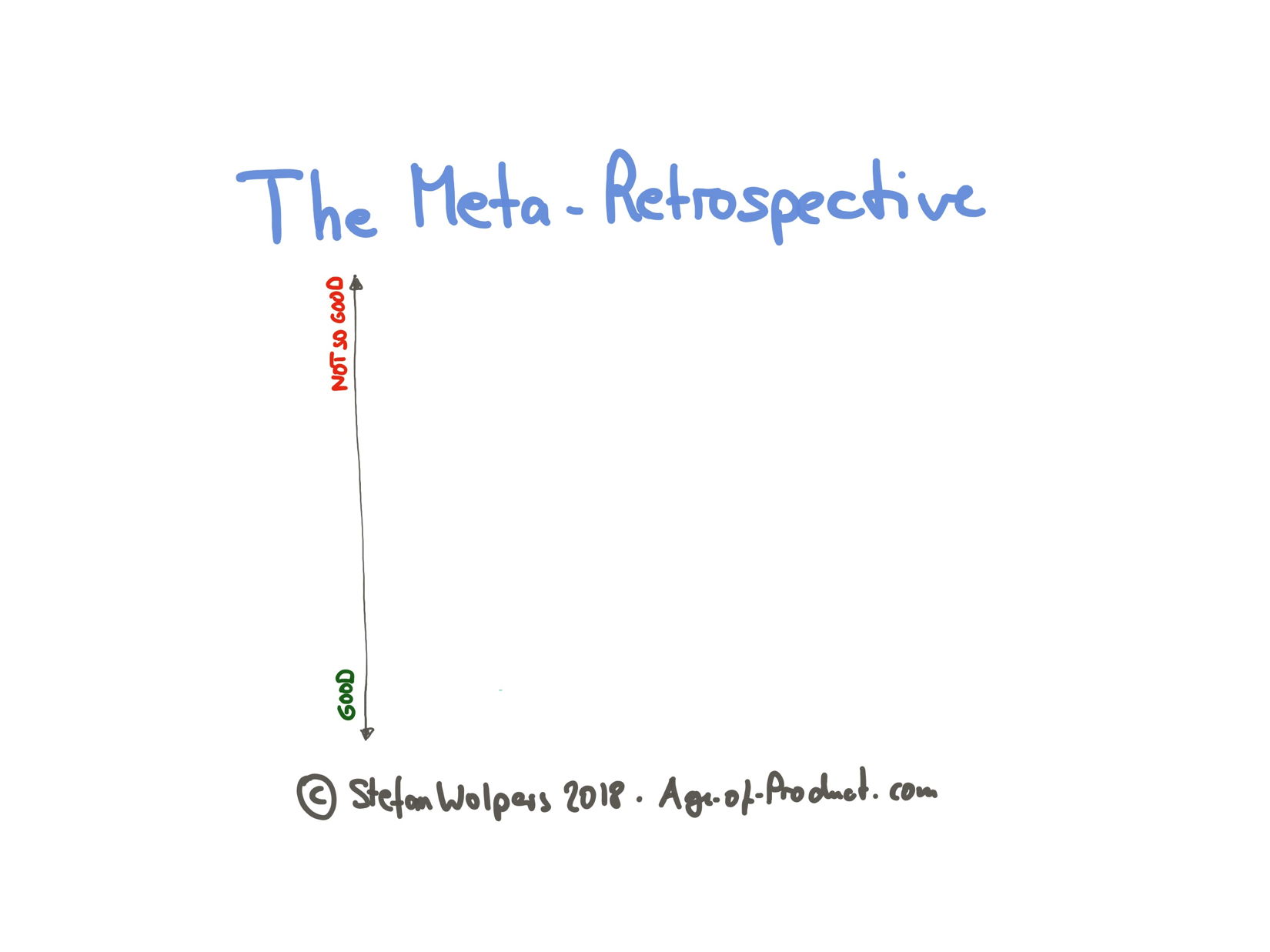
Now ask them to pick their three most important learnings looking back. Time-box this creation phase to 3-5 minutes. After the stickies with the learnings are available, ask every pair to introduce them to the rest of the attendees and put them on the whiteboard. (Again, they shall cluster stickies where appropriate.)
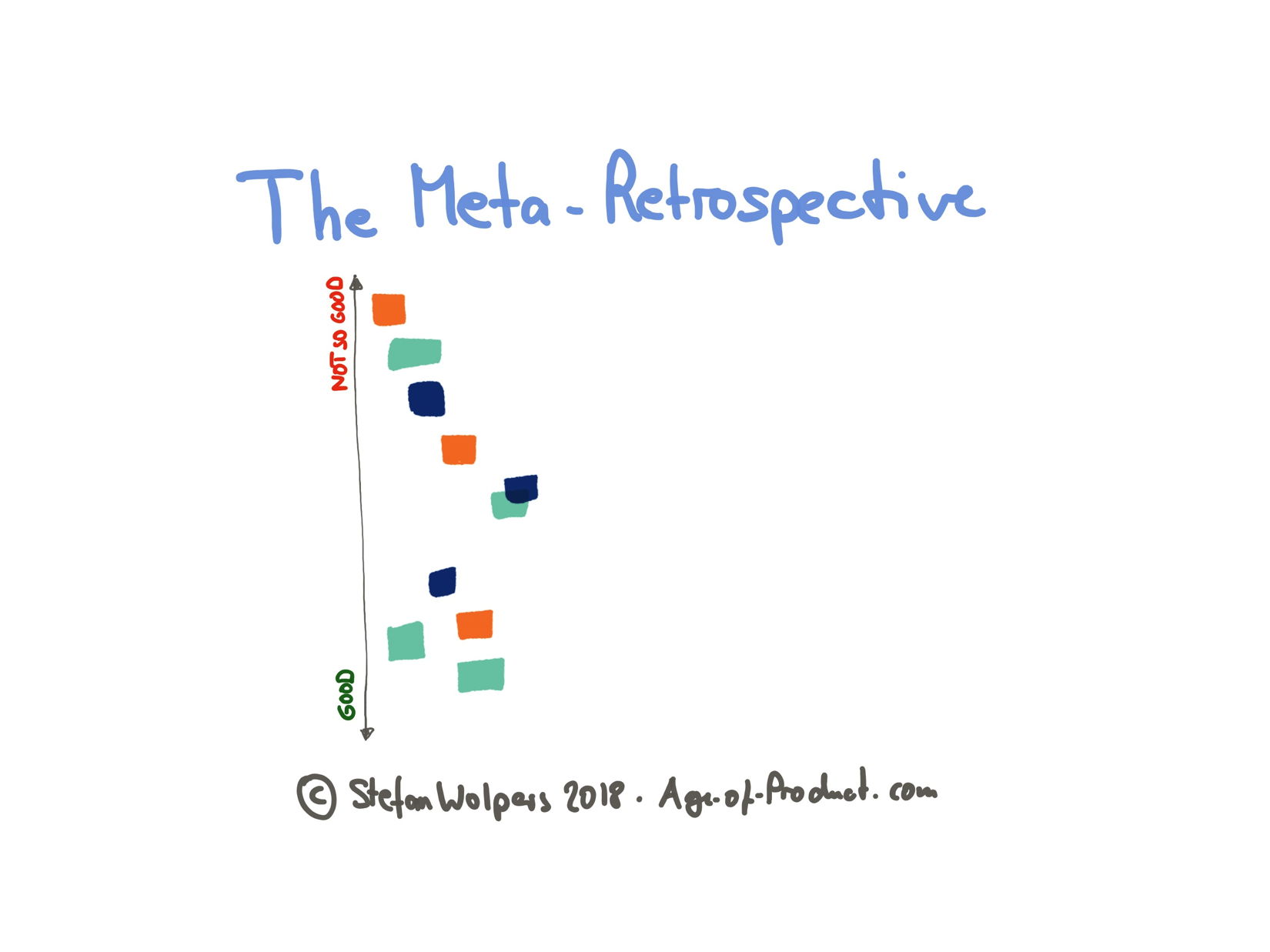
In the next step, introduce the second axis—the “influence” axis—which again is a continuum.
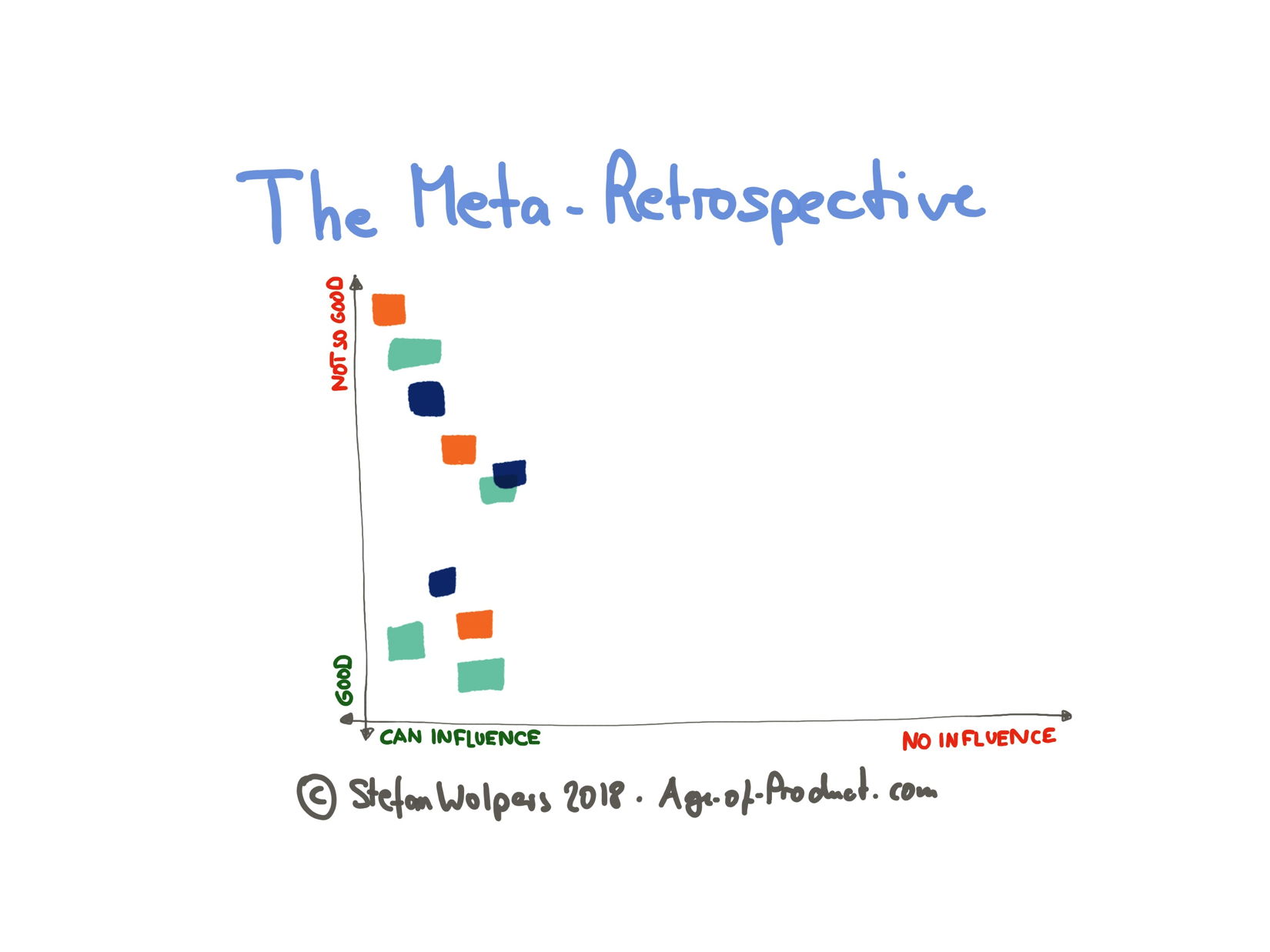
Then ask the participants to align all stickies on the whiteboard also with the second axis. You can stop this once stickies are no longer moved on the whiteboard.
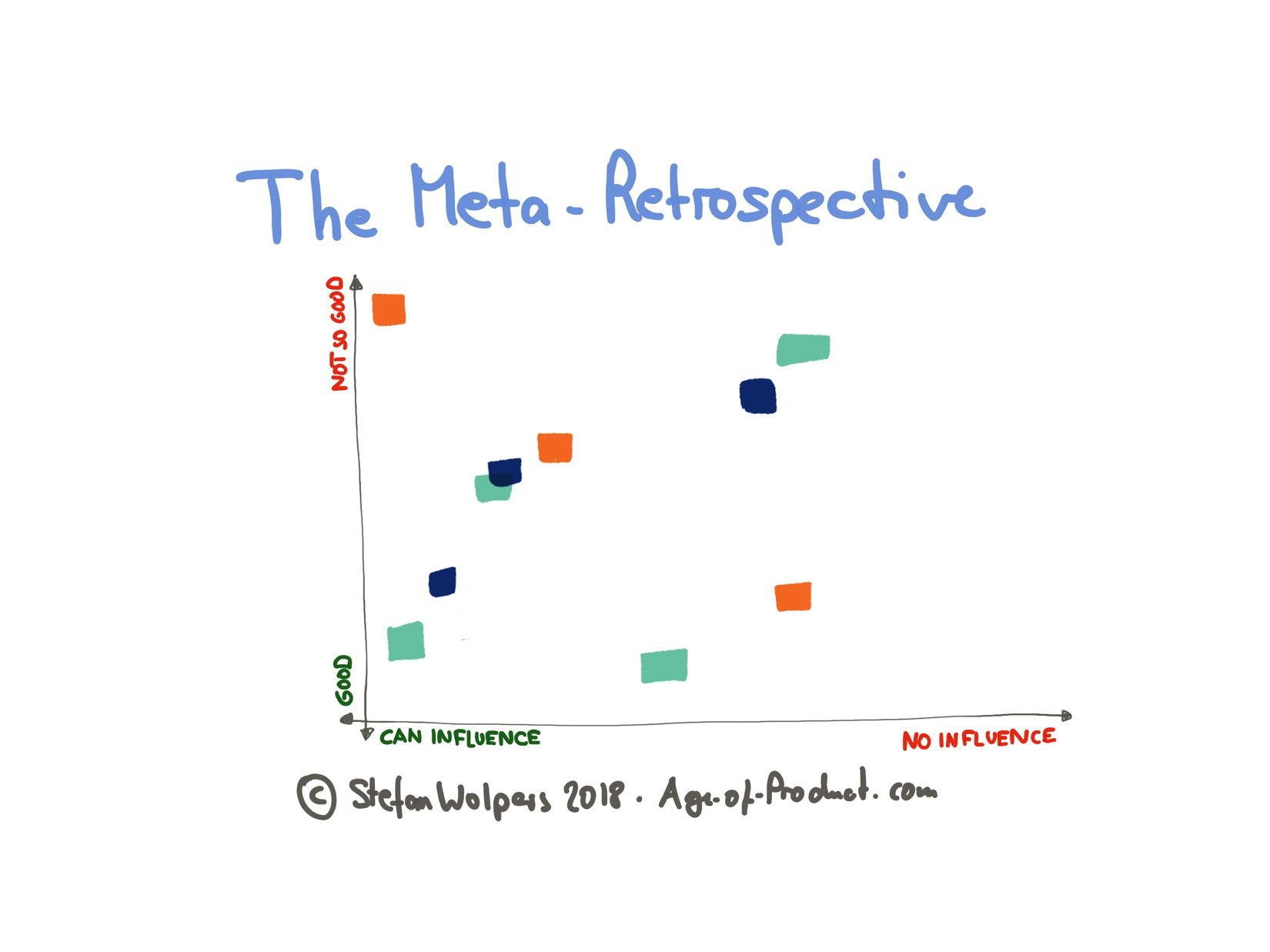
Now it is time to turn the pattern into a 2-by-2 matrix and label the four quadrants accordingly:
- Get to work: This is the area of immediate impact.
- Talk to the management: These issues are impeding you; escalate them to the management.
- Luck: That went well but do not invest any effort in here.
- Keep doing: Nothing to change here at the moment.
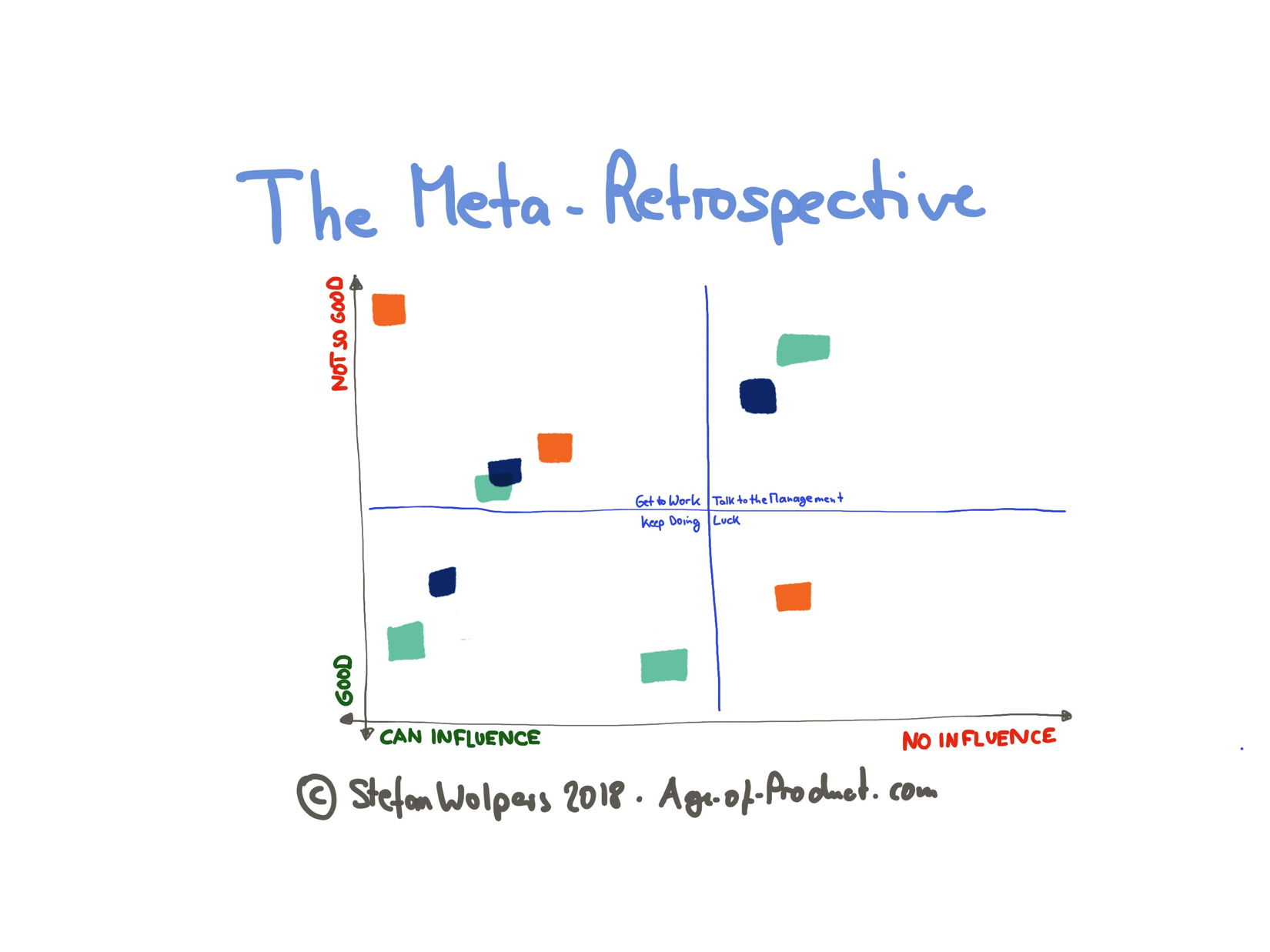
For the next step, focus on the upper left quadrant—“Get to Work”— and ignore the bottom two quadrants. Probably, there will also be time to address the upper right quadrant. (“Talk to the management.”) Start by moving the stickies from the upper left quadrant to a different part of the whiteboard and prepare them for a dot-voting to figure out the ranking of the issues. (I usually issue 3-5 dots to each attendee for this purpose. The voting may take up to five minutes.) Once the voting is accomplished, generate some action-items by running a lean coffee-style discussion based on the ranked issues.
Conclusion
Running a Meta-Retrospective is an excellent exercise to foster collaboration within the extended team, create a shared understanding of the big picture, and immediately create valuable action-items. Best of all: it takes less than two hours to make the ideas of avoiding ‘Muda’ and practicing ‘Kaizen’ tangible to everyone.
Check out the free Meta-Retrospective template, available from the Miroverse.
Related Content
Webinar #10: Sprint Retrospective Anti-Patterns
Liberating Structures for Scrum (1): The Sprint Retrospective
The Top Three System-Level Scrum Stakeholder Anti-Patterns
Download the Scrum Anti-Patterns Guide for free.
📅 Scrum Training Classes, Workshops, and Events
You can secure your seat for Scrum training classes, workshops, and meetups directly by following the corresponding link in the table below:
See all upcoming classes here.

You can book your seat for the training directly by following the corresponding links to the ticket shop. If the procurement process of your organization requires a different purchasing process, please contact Berlin Product People GmbH directly.
✋ Do Not Miss Out and Learn more about the Meta-Retrospective — Join the 19,000-plus Strong ‘Hands-on Agile’ Slack Community
I invite you to join the “Hands-on Agile” Slack Community and enjoy the benefits of a fast-growing, vibrant community of agile practitioners from around the world.

If you like to join all you have to do now is provide your credentials via this Google form, and I will sign you up. By the way, it’s free.
